Fridays
Dial D for Doc: Hitchcock in Hollywood, 1943-1963
Programmed by Jack Hamm
Essay by Jack Hamm
With his title ("The Master of Suspense"), his voice (wryly intoning "Good Evening" before introducing another story of murder and mayhem), and his profile (entering the television screen in shadow to the strains of "Funeral March of the Marionette"), few directors have been more familiar to the viewing public than Alfred Hitchcock. This series features ten of his finest features, all from his first quarter-century in Hollywood, when his talent for keeping the audience at the edge of its seat was unmatched by any other filmmaker.
Hitchcock hit Hollywood like a bombshell in 1940, having already set British cinemas on fire with such early masterpieces as The 39 Steps, The Lady Vanishes, and the original Man Who Knew Too Much. He originally signed a ten-movie deal with David O. Selznick, one of the industry's most powerful producers, but the two type-A personalities quickly clashed even though their first project, Rebecca, nabbed the Best Picture Oscar. They ended up making just three movies together, with Selznick loaning Hitchcock out to other studios seven times. Shadow of a Doubt (chronologically the earliest film in our series) fell into the latter category, being made at Universal. A small-town thriller which is said to have been Hitch's favorite among his own films, perhaps the only way it could have been better would be in the casting. While Joseph Cotton does a perfectly fine job as the murderous Uncle Charlie, it's tempting to speculate what William Powell, the first choice for the part, would have done in a rare shot at a villainous role. (Powell did play the character in a later radio adaptation and knocked it out of the park.) Notorious, filmed three years later, started life as a Selznick production, but ended up being sold to RKO before filming began. With Hitchcock stalwarts Cary Grant and Ingrid Bergman in the leading roles, Claude Rains as the tortured villain, and a memorable love triangle, it ranks very high in the director's filmography. Rope, the first film produced after the end of the Selznick contract, is interesting for many reasons: as Hitch's first color movie, as his first collaboration with Jimmy Stewart, as a fictionalization of the Leopold and Loeb case, and most of all as a fascinating technical experiment. Hitch cleverly "disguises" each cut in the film, giving the illusion that the whole thing is a single 80-minute take. (If you want to compare another approach to the same objective, be sure to see Birdman the next night!)
As he entered the '50s, Hitchcock's powers were reaching their peak. 1951's Strangers on a Train is a true masterwork featuring all of the director's favorite tropes: a meticulously-worked-out murder, a hero falsely accused of crime, and a cunning, dastardly antagonist. This time the villain is played by Robert Walker, whose tremendous potential was snuffed out with his death just two months after the film's release. 1954 saw the release of two more terrific films, Dial M for Murder (a chilling tale of a murder plot gone wrong, oddly adapted in 3-D despite its confined setting and stage-play origins) and Rear Window (with its voyeuristic protagonist, often interpreted as an allegory for the experience of movie-watching itself).
Finally, from 1958-63, Hitchcock embarked on one of the greatest four-movie stretches which the American cinema has ever seen. First was Vertigo, which overcame a chilly initial reception to receive tremendous acclaim later on; in fact, it recently replaced Citizen Kane at the top of Sight & Sound's poll of history's finest films. It's a haunting study of obsession which is difficult to forget after being seen. Almost as good (and even more fun) was Hitch's movie for the next year, North by Northwest, starring Cary Grant as the hapless citizen mistaken for a government spy and chased all around the country by dastardly villains. The movie's final battle at Mount Rushmore gave rise to its sadly-discarded working title, The Man Who Sneezed in Lincoln's Nose. As the '50s turned into the '60s, Hitch became even more daring: his first film of the decade was Psycho, which shocked and fascinated audiences more than any other movie in his oeuvre. It was hard to top the shower scene and the final revelation of the Bates family's dark secrets, and so Hitchcock – who had usually made at least one movie a year for the past three decades – went nearly three years before completing another project. He finally came up with The Birds, an exploration of evil beyond human explanation: a story of nature (in the form of the titular creatures) unaccountably revolting against man.
2015-01-09 @ 6:00 PM 8:30 PM 11:00 PM
Sunday 1:30 PM
Vertigo
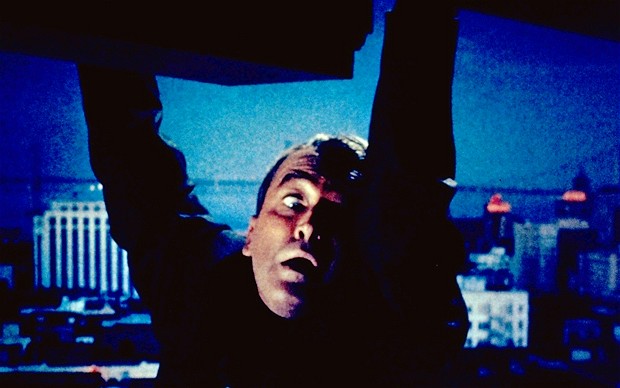
(Alfred Hitchcock, 1958) · Initially overlooked by most critics, Vertigo has made such a tremendous comeback that it's now regarded at Hitchcock's masterpiece and recently supplanted Citizen Kane atop Sight and Sound's poll of cinematic classics. Jimmy Stewart (in his final collaboration with Hitch) excels as a troubled detective, asked to investigate a mysterious woman, who soon finds himself falling deeper and deeper into a strange obsession destined to end in tragedy.
runtime: 128 min format: 35mm
2015-01-16 @ 7:00 PM 9:15 PM
Sunday 1:30 PM
Shadow of a Doubt
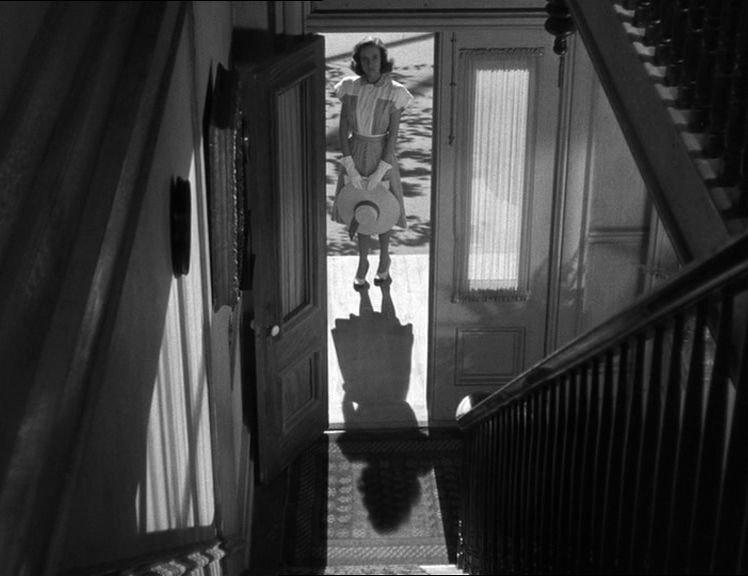
(Alfred Hitchcock, 1943) · Hitchcock described this sinister slice of small-town Americana as his favorite among his own films, and it certainly ranks near the top. In the boring atmosphere of Santa Rosa, CA, bored teenager Charlie welcomes a visit from her uncle and namesake, but soon becomes suspicious of his behavior. Why does he refuse to be photographed? Why is he being shadowed by a mysterious duo? And what is the connection to a newspaper story about a notorious criminal?
runtime: 108 min format: 35mm
2015-01-23 @ 7:00 PM 9:00 PM 11:00 PM
Sunday 1:30 PM
Strangers on a Train
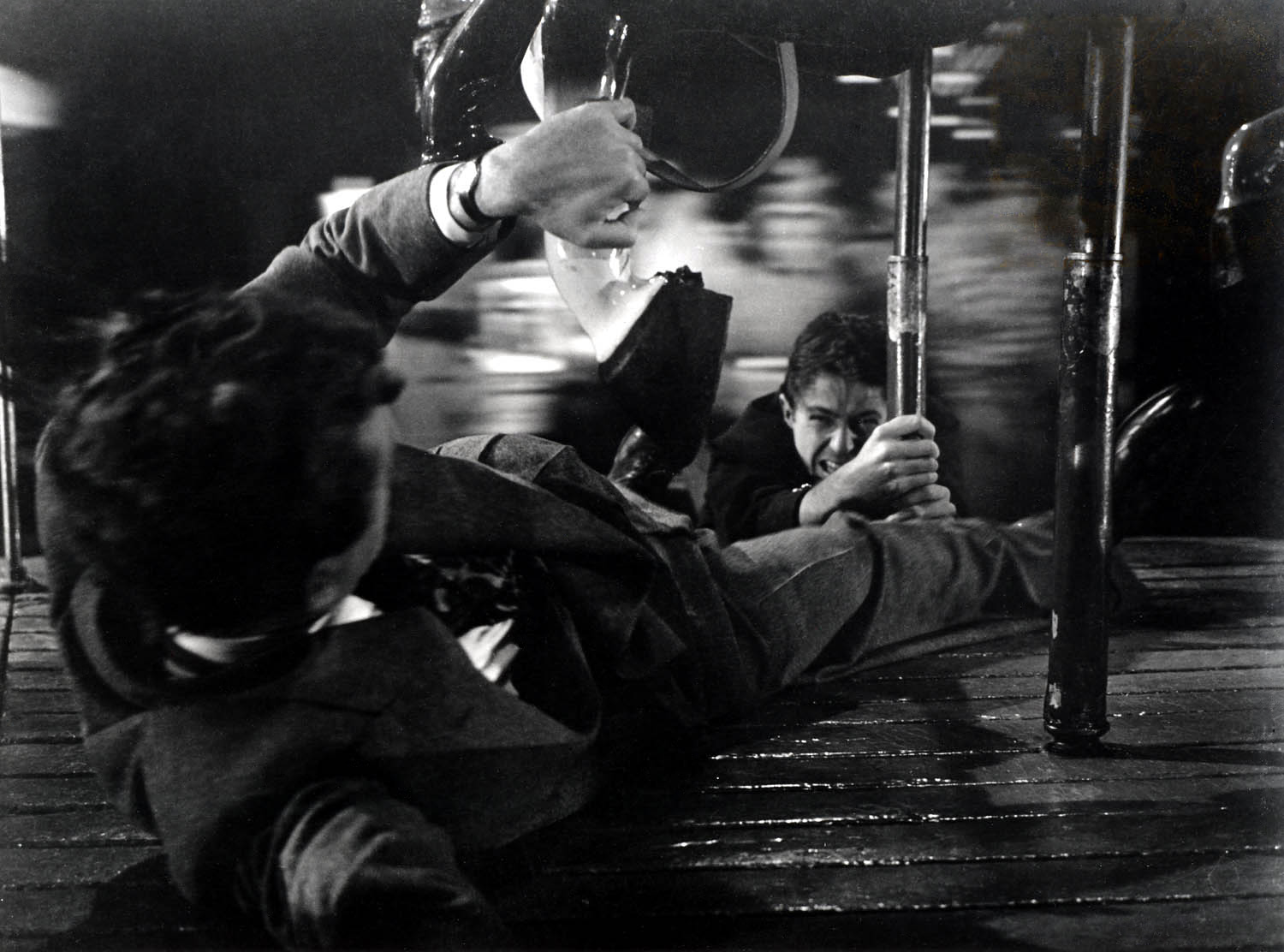
(Alfred Hitchcock, 1951) · The strangers are Guy, a tennis star who wants to divorce his wife, and Bruno, an unbalanced playboy with a scheme for the perfect murder: he'll eliminate the recalcitrant spouse if Guy will kill his hated father. Guy laughs him off, but finds himself under pressure from the police when Bruno goes through with his side of the plan. Featuring a brilliant villainous performance from the doomed Robert Walker, who would die before completing another film.
runtime: 101 min format: 35mm
2015-01-30 @ 7:00 PM 9:15 PM
Sunday 1:30 PM
Notorious
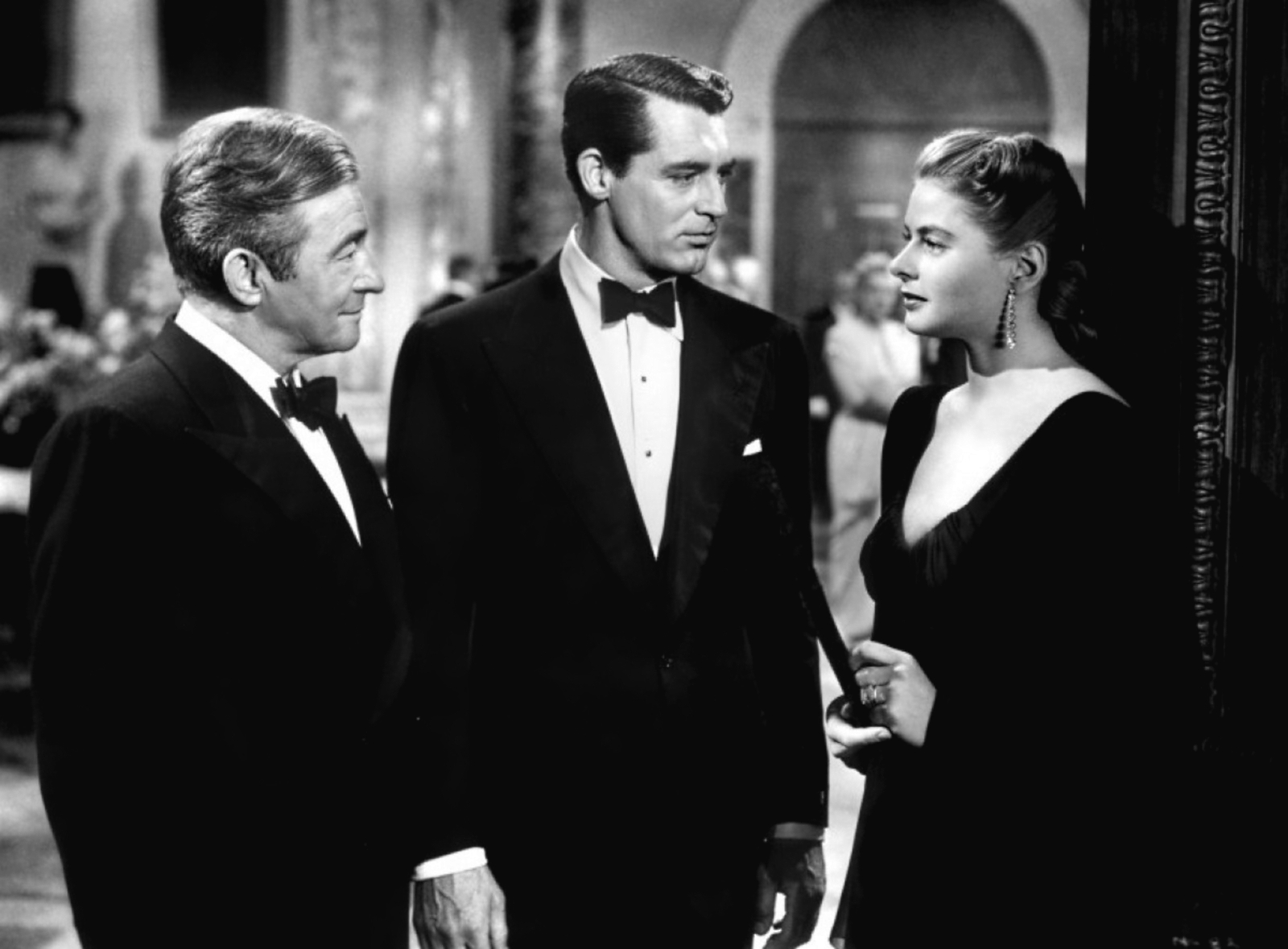
(Alfred Hitchcock, 1946) · This post-WWII thriller – perhaps Hitchcock's strongest producton of the '40s – pairs him with two of his favorite stars: Ingrid Bergman, as the repentant daughter of a traitorous scientist, and Cary Grant, as the government agent who entices her into a scheme against a surviving cabal of Nazi sympathizers. Claude Rains, in the villainous role, provides the third side of the triangle in one of the most memorable romances Hitch ever depicted on the big screen.
runtime: 102 min format: 35mm
2015-02-06 @ 6:30 PM 8:45 PM 11:00 PM
Sunday 1:30 PM
Rear Window
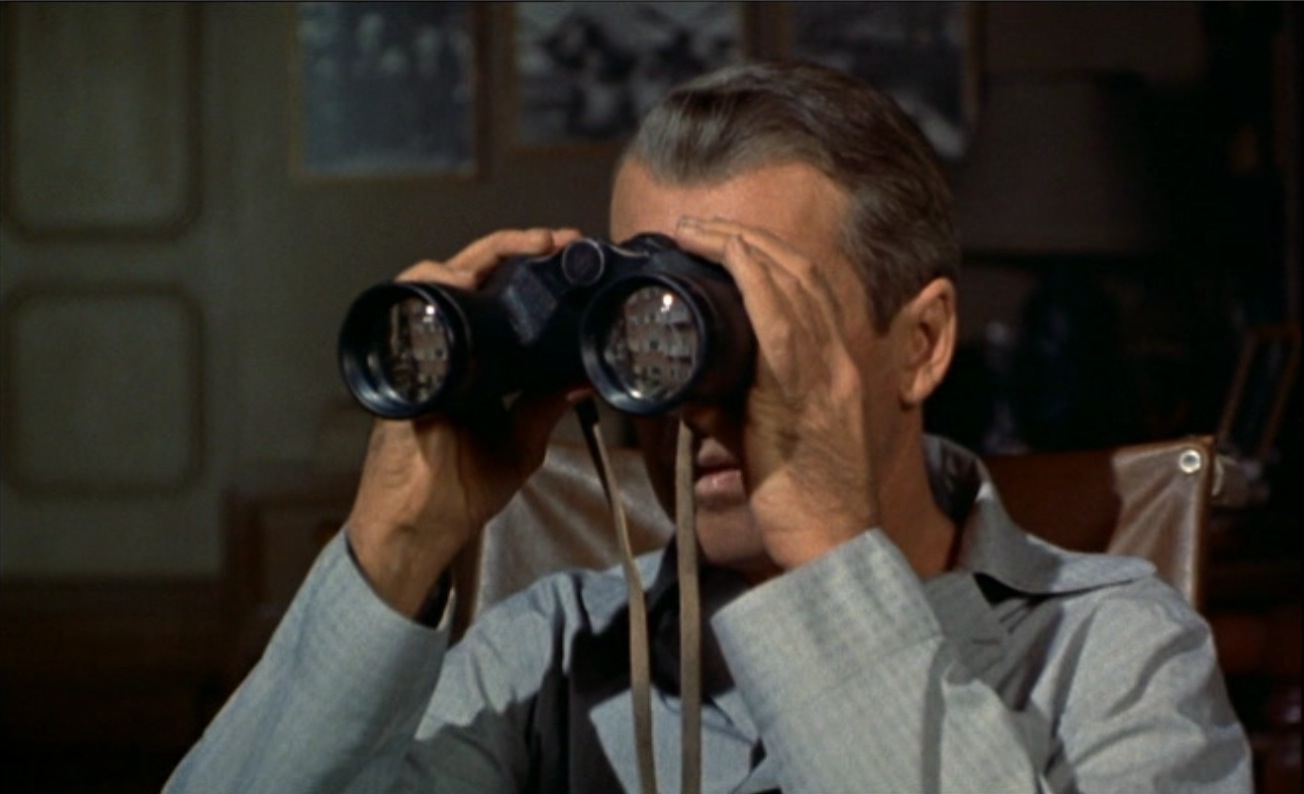
(Alfred Hitchcock, 1954) · Much imitated but never equalled, this picture tells the story of an injured photographer (Jimmy Stewart), cooped up at home, whose favorite pastime is looking through the windows of the building opposite him. But his hobby brings frightening consequences when he hears a scream and sees a neighbor (Perry Mason star Raymond Burr in a villainous turn) removing a large trunk from his apartment. The next day, the man's wife seems to have vanished...
runtime: 112 min format: 35mm
2015-02-13 @ 7:00 PM 9:45 PM
Sunday 1:30 PM
North by Northwest

(Alfred Hitchcock, 1959) · Conceived as an attempt to produce "the ultimate Hitchcock movie," this one has all of Hitch's classic tropes, including a falsely-accused hero, a beautiful blonde with mysterious intentions, and a final battle in a high-and-dizzy location. Frequent collaborator Cary Grant stars as an innocent bystander mistaken for a government operative by enemy agents, leading him on a cross-country chase which ends in a life-or-death struggle atop Mount Rushmore.
runtime: 136 min format: 35mm
2015-02-20 @ 7:00 PM 9:00 PM 11:00 PM
Sunday 1:30 PM
Dial M for Murder
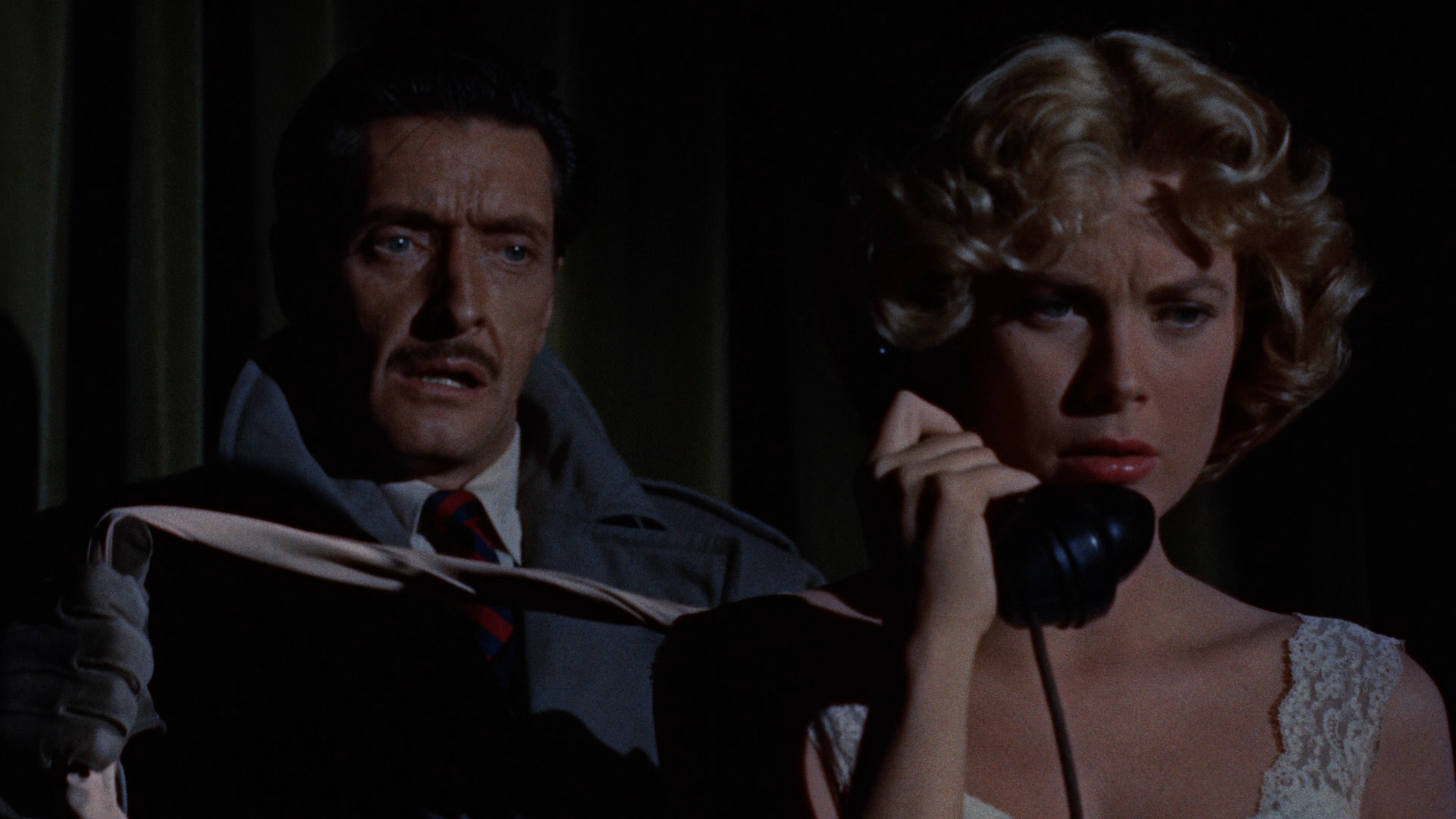
(Alfred Hitchcock, 1954) · This murder tale shows us the killer's scheme at the very beginning; in classic Hitchcock fashion, the suspense comes not from a sense of mystery but from wondering whether the characters will find the truth before it's too late. Tony (Ray Milland) seems to have plotted out the perfect crime, hiring a criminal to kill his beautiful, unfaithful wife (Grace Kelly), but things quickly go terribly wrong, leaving an innocent person in danger of execution.
runtime: 105 min format: 35mm
2015-02-27 @ 7:00 PM 9:15 PM
Sunday 1:30 PM
Psycho

(Alfred Hitchcock, 1960) · Perhaps the most notorious (apologies to Grant and Bergman) of all Hitchcock's films, Psycho explored uncharted territory in sex and violence. Anthony Perkins' performance as unhinged Norman Bates, the fate of escaped thief Marion Crane in the shower of Bates Motel room #1, and the movie's shocking twist have all become cinematic icons. Be sure to see it from the very beginning: Hitchcock insisted that his viewers couldn't be even one minute late!
runtime: 109 min format: 35mm
2015-03-06 @ 7:00 PM 8:45 PM 10:30 PM
Sunday 1:30 PM
Rope
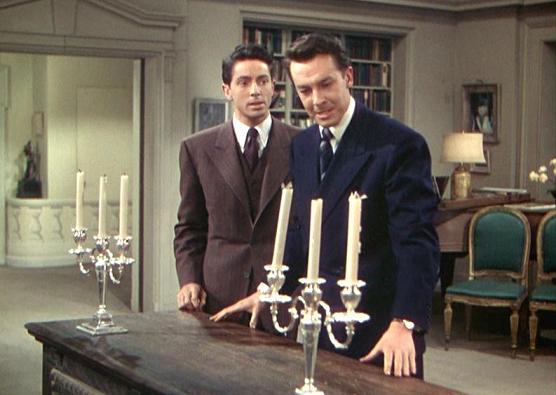
(Alfred Hitchcock, 1948) · Leopold and Loeb (under different names, of course) get the Hitchcock treatment in this tale of two amiable young psychopaths who've plotted out the perfect murder. As the crowning touch to their scheme, they serve dinner to the deceased's family and friends on a table containing his body. But can they fool their former teacher (Jimmy Stewart)? The film is notable for its "hidden" cuts, simulating the experience of a single shot throughout the whole movie.
runtime: 80 min format: 35mm
2015-03-13 @ 6:30 PM 8:45 PM 11:00 PM
Sunday 1:30 PM
The Birds
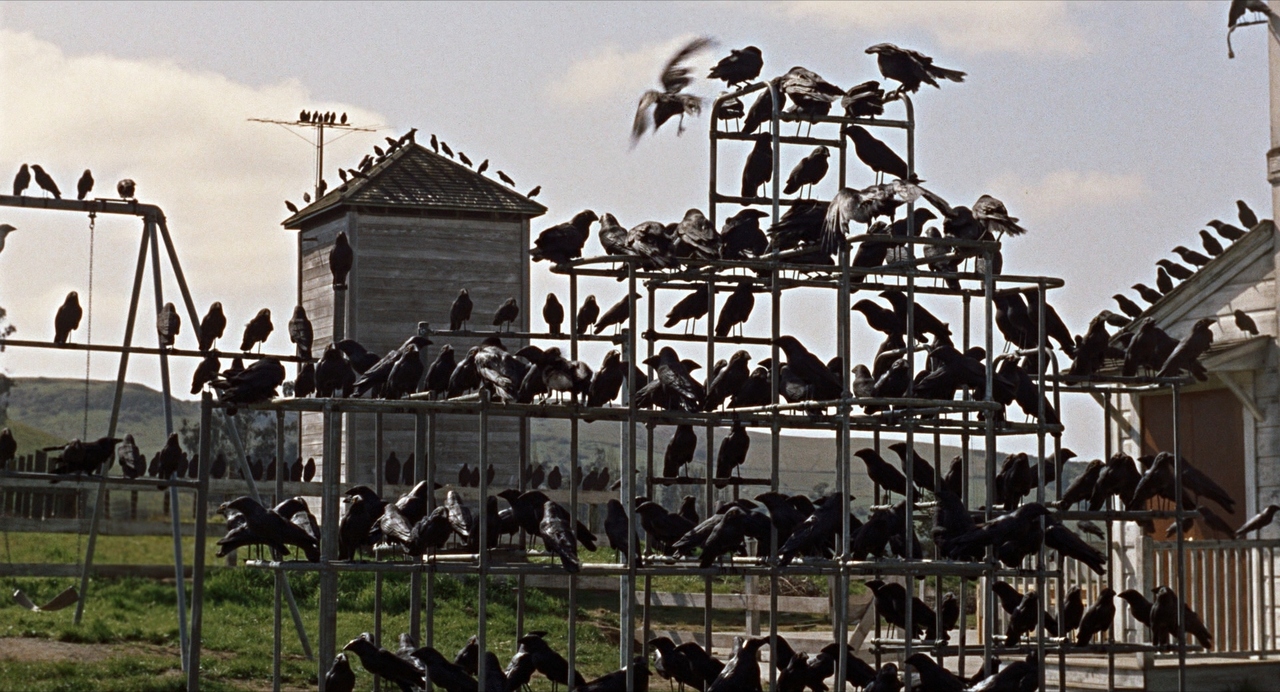
(Alfred Hitchcock, 1963) · "The next scream you hear may be your own!" commented Hitchcock on the poster for this picture – not a depiction of human evil but an uncharacteristic journey into the supernatural. In placid Bodega Bay, CA, our avian friends seem to be getting strangely aggressive, culminating in a full-out assault against the town's human population. Based on a story by Daphne Du Maurier, the film features Rod Taylor and newcomer "Tippi" Hedren atop its human cast.
runtime: 119 min format: 35mm



